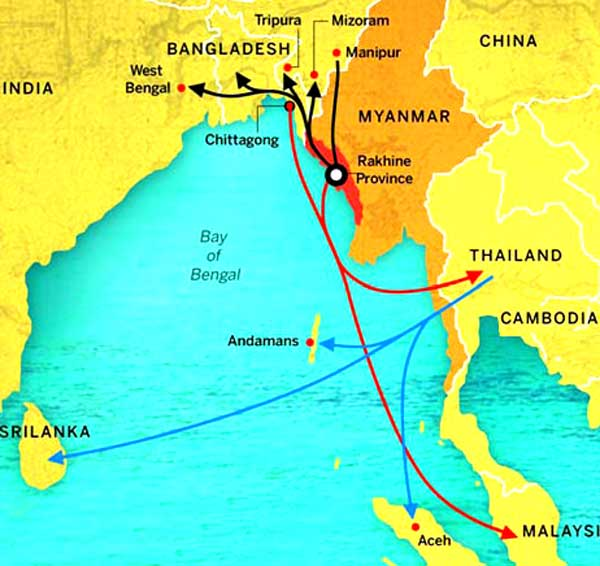UNHCR team Meets Rohingya refugees in Jammu | 16 Dec 2024
Why in News?
Recently, a two-membered team of United Nations High Commissioner for Refugees (UNHCR) visited Rohingya refugees staying in Jammu and surrounding areas.
Key Points
- The visit followed controversy over the administration’s order to disconnect water and power supplies to slums housing illegal Rohingyas.
- Jammu’s Jal Shakti Minister clarified that water and power supply to these areas would not be cut.
- Government and Public Response:
- Local organisations and political groups have been calling for the deportation of Rohingya refugees.
- The Chief Minister stated that while the Centre must decide the fate of the Rohingyas, they cannot be left to suffer from starvation or cold.
- NGO and Aadhaar Linkages:
- Investigations revealed that four Non-governmental Organizations (NGOs) were helping Rohingyas settle in Jammu.
- Reports indicate that 158 Rohingyas obtained Aadhaar cards unlawfully, and several Rohingya women have married local youths in Jammu and Kashmir.
- According to government data, over 13,700 foreigners, including Rohingyas and Bangladeshi nationals, reside in Jammu and other districts of J&K.
- Legal and Political Actions:
- First Information Reports (FIR) were recently registered against landlords renting properties to Rohingyas without informing the police, violating district magistrate orders.
- National Security Concerns:
- Political organisations have urged the Central Government to deport Bangladeshi and Rohingya refugees, citing potential national security risks.
Rohingya Crisis
- The Rohingya people have suffered decades of violence, discrimination and persecution in Myanmar.
- Rohingya are not recognized as an official ethnic group and have been denied citizenship since 1982. They are one of the largest stateless populations in the world.
- Since the early 1990s, the Rohingya have fled successive waves of violence in Myanmar.
- Their largest and fastest exodus began in August 2017 when violence broke out in Myanmar’s Rakhine State, driving more than 742,000 people to seek refuge in neighbouring countries, the majority of whom were women and children.

